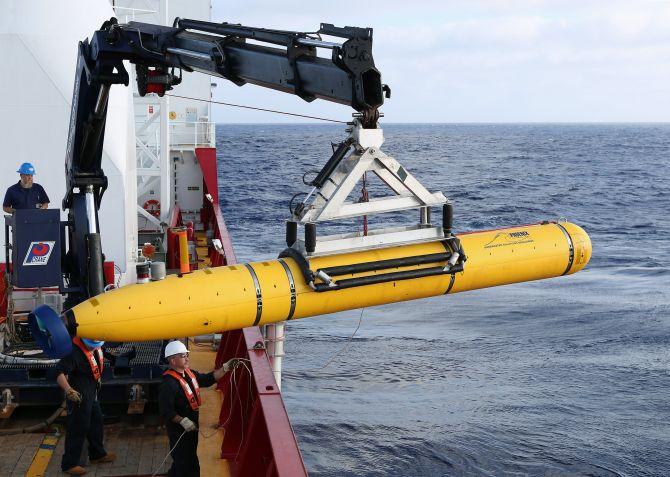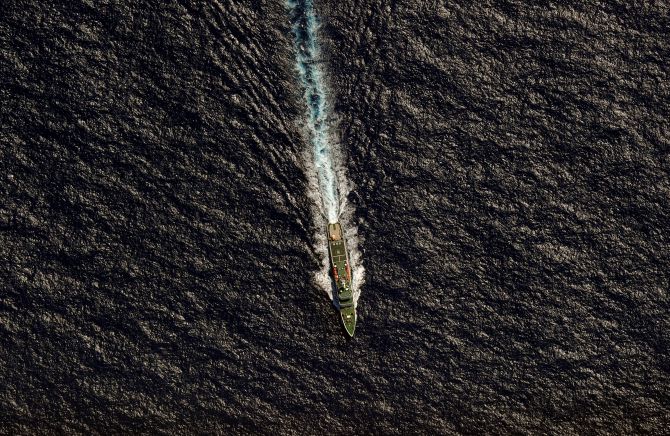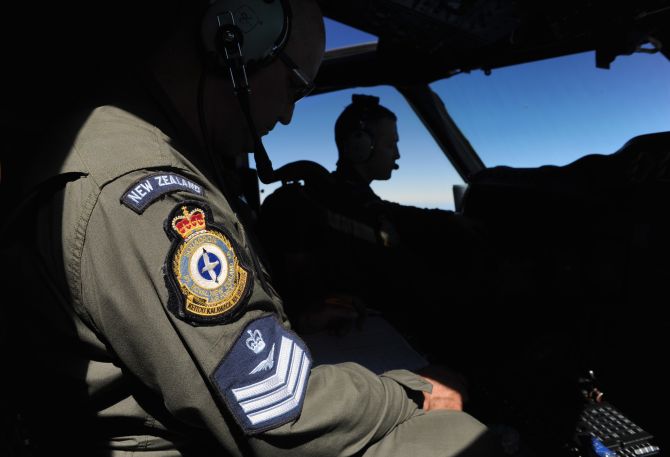
A robotic submarine deployed to locate the missing Malaysian plane's black boxes on the floor of the Indian Ocean on Tuesday aborted its first search as it encountered water deeper than its operating limits of 4.5 km.
Autonomous underwater vehicle Bluefin 21, a US Navy probe equipped with side-scan sonar, was deployed last evening from the Australian navy ship Ocean Shield to map the ocean floor.
However, the mini-submarine deployed for 16 hours aborted its first search after just six hours because the water was deeper than its operating limits, officials said.
"After completing around six hours of its mission, Bluefin-21 exceeded its operating depth limit of 4,500 metres and its built in safety feature returned it to the surface," the Joint Agency Coordination Centre which is leading the search said on the 39th day of the hunt for the plane.
"The six hours of data gathered by the Autonomous Underwater Vehicle is currently being extracted and analysed," it said.
Click NEXT to see more PHOTOS...

The Bluefin-21 will make a second mission today to the remote Indian Ocean seabed when weather conditions permit.
Malaysia's Acting Transport Minister Hishammuddin Hussein told reporters that it's "not important" who gets the black box, it's more important to find the truth.
Finding black the black box is crucial to know what happened on March 8 before the Beijing-bound Malaysia Airlines flight MH370 with 239 people, including five Indians, an Indo-Canadian and 154 Chinese nationals, mysteriously vanished after taking off from Kuala Lumpur.
The batteries powering the black box are certified to be working for 30 days, but can still provide weak signals for some more days. Stored in a plane's tail, they are designed to begin sending off distinct, high-pitched signals as soon as they come in contact with water.
Click NEXT to see more PHOTOS...

Meanwhile, Australian chief search coordinator Air Chief Marshall (retd.) Angus Houston said officials were investigating an oil slick about 5,500 meters from the area where the last underwater sounds were detected.
According to a JACC statement, the Australian Maritime Safety Authority has planned a visual search area totalling approximately 62,063 square kilometres on Tuesday.
The weather forecast is south easterly winds with scattered showers and isolated thunderstorms, sea swells up to two metres and visibility of 5 kilometres.
Up to 9 military aircraft, two civilian plane and 11 ships are assisting the search operation.
The mystery of the missing plane continued to baffle aviation and security authorities who have so far not succeeded in tracking the aircraft despite deploying hi-tech radar and other gadgets.
Click on MORE to see another PHOTO feature...